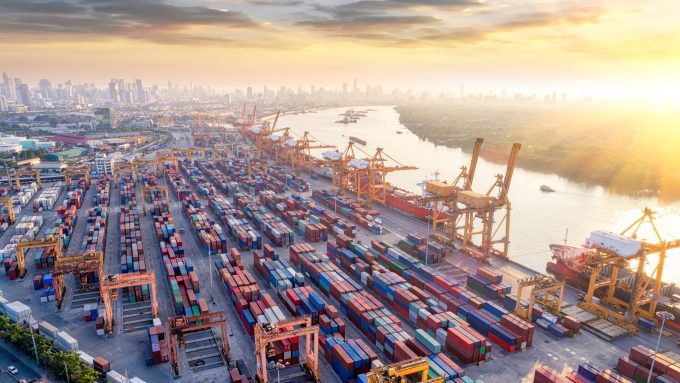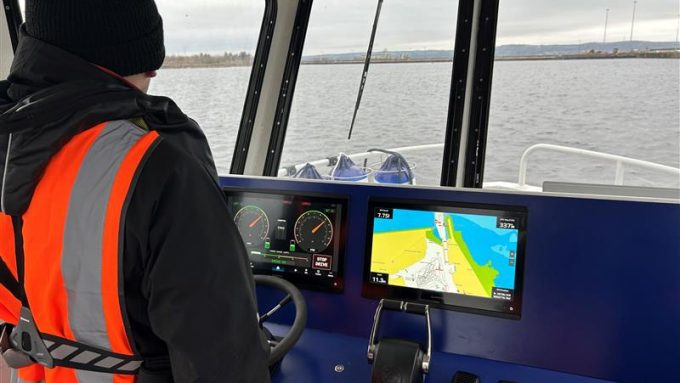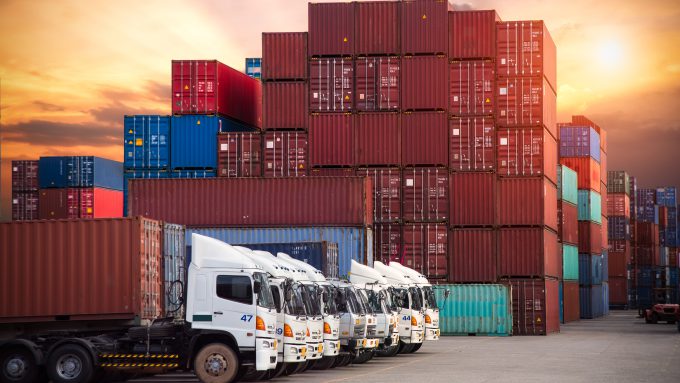
Clean Maritime Day at COP26

Global shipping depends on similar cargo handling facilities, repair yards and a ready supply of spare parts to keep breakdowns to a minimum. Therefore, how do we even start to change a whole system, made up of millions of moving parts that the world relies on?
CPC in partnership with Maritime UK, hosted the International Maritime Hub, bringing together innovators from across the globe working on the challenges of maritime decarbonisation. Here are the outcomes of their deliberations, though in reality the challenges the sector faces are continuous and solutions are unable to be found in one week.
‘Collaboration at its best’
The Department for Transport, Knowledge Transfer Network and Maritime UK hosted a session bringing together representatives from many of the projects in the recent Clean Maritime Demonstrator Competition, funded by the Department for Transport and delivered in partnership with Innovate UK. This was pivotal as a starting point for discussion.
Connected Places is pleased to be working with industry and academic partners in four of these successful projects, based at ports across the UK including Portsmouth International Port, PD Ports, Aberdeen Harbour and the Port of Tyne.
As part of the Prime Minister’s Ten Point Plan (announced in March 2020) to position the UK at the forefront of green shipbuilding and maritime technology, the Clean Maritime Demonstration Competition (CMDC) is a £20m investment from the government alongside a further £10m from industry to reduce emissions from the maritime sector. The programme is supporting 55 projects across the UK. Government funding has been utilised to support early-stage research relating to clean maritime. The programme will be used to support the research, design and development of zero-emission technology and infrastructure solutions for maritime and to accelerate decarbonisation in the sector.
Key speakers on the day:
- Robert Courts MP, Parliamentary Under-Secretary of State for Maritime, spoke about the importance of making our transition to net-zero an economic opportunity for the UK.
- David Tozer, Head of Maritime and Land Transport at Innovate UK shared more on the high levels of engagement from industry.
- John Hutchison, Head of Maritime, Department for International trade outlined the support available to businesses and innovators
Five Clean Maritime Projects projects were showcased:
- Electric charging infrastructure – Portsmouth Harbour
- Hydrogen fuelled survey vessels – by Acua Marine
- Clean energy offshore service vessels – Bibby Marine
- Feasibility of electric port operations – Port of Belfast
- Vertically Integrated ‘cloud based’ port operations – General Electric & Teeside University
Clean Maritime–a technology perspective
Technology has always influenced the way the UK undertakes trade and the twenty-first century is no different from the sixteenth. The following organisations presented the impacts of new technology within the maritime sector:
Compagnie Maritime Belge (CMB), a Belgian shipping company, showcased an impressive range of hydrogen-powered innovations. These included hydrogen-powered heavy goods vehicles, floating hydrogen refuelling stations, multi-modal hydrogen refuelling hubs and hydrogen survey vessels.
BAE Systems, Varuna Marine Services and Lloyd’s Register, with a special introduction from Paul Little, founding Principal and CEO of The City of Glasgow College. Delivered thought-provoking presentations in the regard to the future of clean maritime. These ranged from the circular economy (shipbuilding in a modular format and decommissioning) to the handling of new propulsion systems, ways of working and regulatory aspects.
Whilst these challenges may seem vast in their complexity, much progress has been made in recent years and throughout COP26. As a result, the future for clean maritime looks promising.
Connected Places Catapult is pleased to see not only the progress at COP26 but also the work already ongoing in the UK with the Government's support to accelerate our transition to a greener maritime and ports sector. We look forward to sharing more about our own work, together with our partners across industry and academia over the coming months.
To find out more about our Clean Maritime activities, simply click here.





